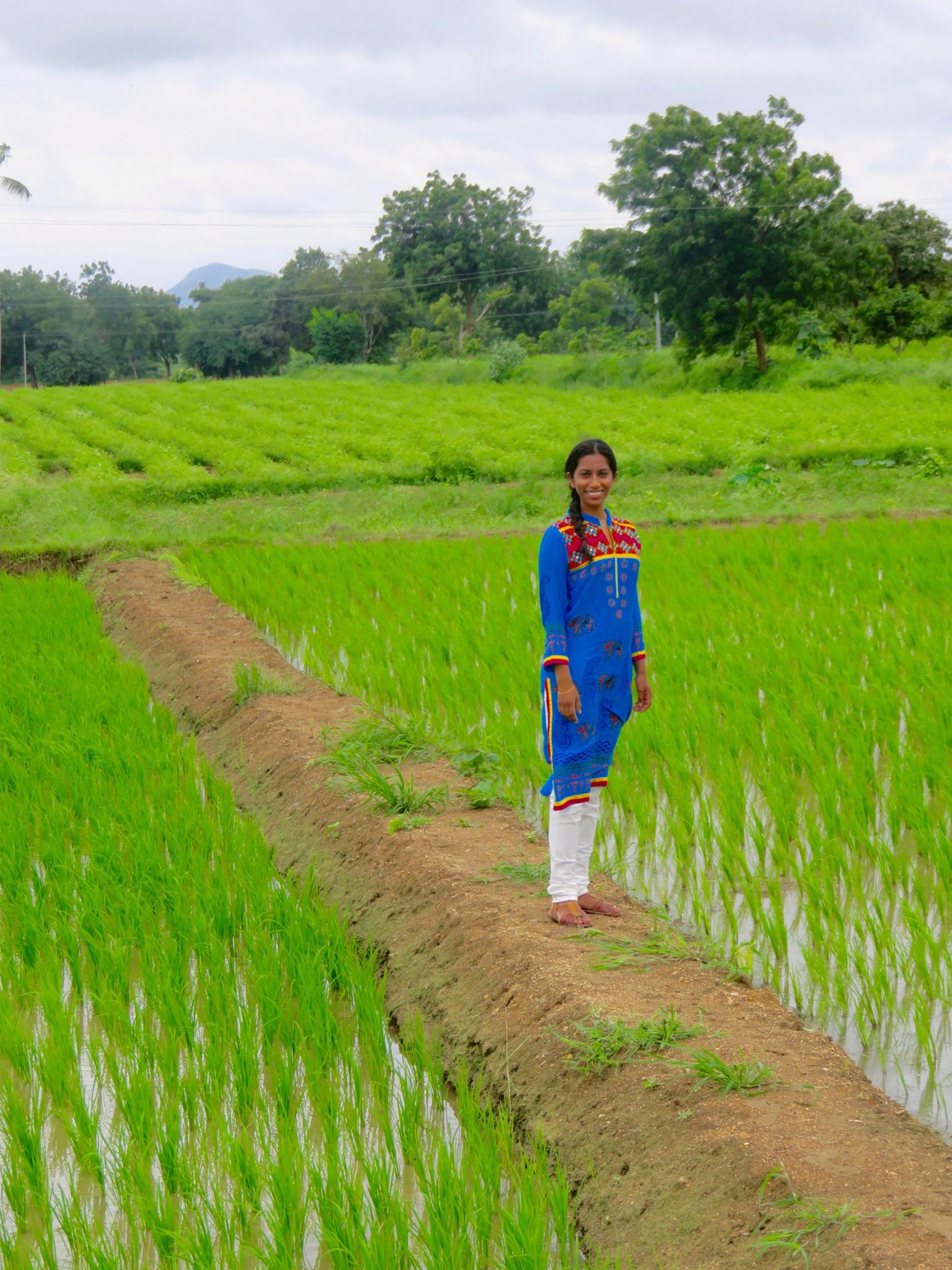
Srilakshmi Raj talks about her research into genetic variation in different population groups.
If we can understand why certain people are more susceptible to certain diseases it will be a huge step forward. We all emerged from Africa and genetic diversity there is so great. When there is so much variation, context becomes important.
Srilakshmi Raj
Srilakshmi Raj was recently name one of Forbes’ 30 under 30 in Healthcare in recognition of the potential impact of her research into genetic variation in different population groups.
The award means she becomes part of a new network of young leaders making a difference in healthcare. “Like Gates Cambridge it means I get to meet people from different backgrounds and with new perspectives,” says Srilakshmi.
Srilakshmi’s work adopts a community-based approach to genomics, identifying genetic variants according to factors such as the environmental context. She says this will result in more targeted treatments that take into account individual phenotypes. It will also help us to understand how different populations reacted to climate change in the past and how they might do so in the future.
At Cambridge, where she was a student at Gonville & Caius College and did her PhD in Biological Anthropology, Srilakshmi [2007] researched variation of diabetes and obesity genes in different population groups in Karnataka state in southern India. Diabetes is a huge problem in India and the country is projected to have the highest number of diabetes cases in the world. Certain regions of India, and certain ethnic groups, have more prevalence of it than others. Srilakshmi wanted to find out if that was due to genetic causes. For example, prevalence of diabetes and obesity is higher in urban compared with rural areas. Research from European populations identified multiple genes associated with many complex diseases, including diabetes. Srilakshmi studied the distribution of the frequency of “variants” of these genes in the peoples of the sub-continent.
She says previous studies trying to associate particular genes with diabetes and obesity risk in India have sometimes been misleading because they have sought to be representative of the country’s population diversity by taking a limited number of people from the North or South of India and often ignoring their ethnic background. In fact, she says, Indian population/ethnic diversity is highly complex (and only second to the human diversity in Africa). This is due to the country’s caste structure and widespread consanguinity within ethnic groups, meaning many are descended from the same ancestors. “A one-size fits all approach to medicine could easily mislead,” she says. For instance, one group she studied consumes high levels of dairy products and has high incidence of gum disease, but low levels of diabetes. Environmental factors such as mass migration, diet, medicine and climate may all play a role in a population’s susceptibility to disease.
Africa
After finishing her PhD at Cambridge in 2011, Srilakshmi, who is from Massachusetts, wanted to gain a better understanding of how genes act in different biological and environmental contexts. She is doing her post-doctoral training at Cornell University under the mentorship of Professor Andrew Clark. In the last few years she has been working on African and European genomics and on a variety of diseases, including hypertension and coronary heart disease, using new techniques to explore the links between genes and the environment.
Over the last couple of years, for instance, she has been collaborating with the University of Pennsylvania on a project exploring the genetics of different African populations. Srilakshmi says she has been heavily influenced by the approach of her collaborator, Dr Sarah Tishkoff, which combines fieldwork, computational research and laboratory studies in Africa.
This collaborative project includes hunter gatherer populations, some of which have never been sampled before. “It has been a real privilege. My research will show how these populations have adapted to their environments,” says Srilakshmi. The data enables researchers to explore, for instance, how living in malaria-endemic areas for hundreds of generations may have influenced a population’s genetic architecture. “If we can understand why certain people are more susceptible to certain diseases it will be a huge step forward,” she adds. “We all emerged from Africa and genetic diversity there is so great. When there is so much variation, context becomes important.” She has journal papers coming out on this research in the summer.
Gates Cambridge
She says she is very grateful to Gates Cambridge, particularly for exposing her to a global community of scholars from so many different backgrounds. Her research has benefited from the interdisciplinary approach inspired by Gates Cambridge. While she was at Cambridge, for instance, conversations with a Gates Cambridge Scholar Dr Sara Ahmadi-Abhari, a public health specialist, led to her collaborating with nutritionist Professor Susan Jebb to investigated the role of long-term dietary habits on phenotypes. Srilakshmi also collaborated with geographers Dr Hans Graf and Gabriel Amable, as a result of conversations with Gates Cambridge Scholars Kavita Ramakrishnan and Yama Dixit. “I have become more specialised since those days and am now more focused on computational biology, but those interactions have informed how I do my research and how I communicate with other researchers,” says Srilakshmi. “Gates Cambridge is a wonderful community.”
She adds that the Forbes community, though mostly made up of entrepreneurs and other specialties rather than academics, mirrors the breadth of interactions she was exposed to at Cambridge. “Like Gates Cambridge, they are open, motivated people who are trying to make a difference in the world,” she says. “This approach is in the very fabric of Gates Cambridge.“

Srilakshmi Raj
- Alumni
- United States
- 2007 PhD Biological Anthropology
- Gonville and Caius College
Originally from Lexington, MA, I completed my BA in Human Sciences at the University of Oxford in 2007. I am doing a PhD in Biological Anthropology with Dr Toomas Kivisild. My work involves investigating the distribution of type 2 diabetes and obesity associated genetic loci among ethnic groups within India.












